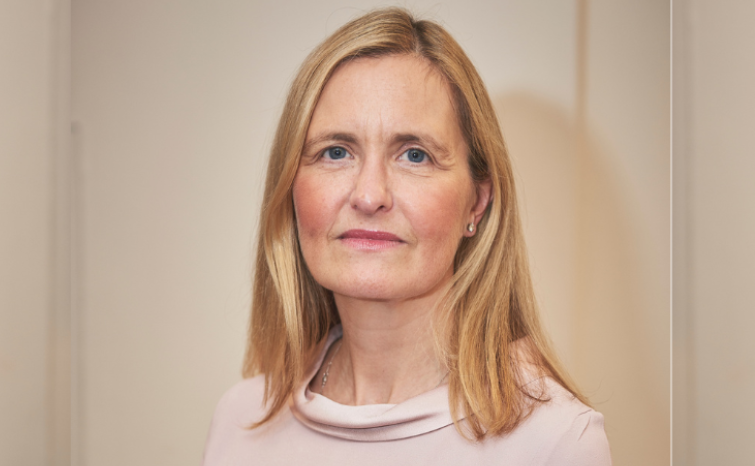Industry news in brief
- 8 February 2019

This month’s industry news in brief features news that OMRON Healthcare has partnered up with Amazon Alexa in the UK which will allow people to ask the voice-based service questions about their blood pressure. Outside the UK, PatientSource has been awarded the contract to install an Electronic Patient Record (EPR) system on the remote island of St Helena.
OMRON Healthcare announces UK partnership with Amazon Alexa
OMRON Healthcare has partnered up with Amazon Alexa in the UK which means the voice-based service is able to compare blood pressure readings.
It also allows users to find out about their cardiovascular health quickly and easily by simply saying phrases like “Alexa, what was my blood pressure average this month?”.
The OMRON skill for Alexa works through the OMRON connect app, which allows Alexa to compare readings across different dates and times of the day, and the latest reading against the last highest or lowest recorded reading.
The new skill can also provide the average reading upon request and locates and reads back their latest blood pressure reading.
Commissioning Support Unit awarded procurement excellent award
The Chartered institute of Procurement & Supply (CIPS) has awarded NHS Arden & GEM Commissioning Support Unit (CSU) standard level in the Procurement Excellence Programme (PEP).
The PEP programme recognises how well organisations are performing with their procurement and supply chain activities.
The award drives regular improvements, building a competitive edge and highlighting procurement’s role as a fundamental part of an organisation’s business and strategy.
Warren Simms, procurement director at Arden & GEM, said: “This prestigious endorsement of Arden & GEM’s commitment to procurement excellence recognises the hard work and expertise of the service. It provides assurance to our customers that we have robust systems and processes in place, that have stood up to independent scrutiny, and that we continually challenge and improve our ways of working to deliver the highest possible standards.
“This process has also had a positive impact on staff morale and confidence which sets us up to manage the challenges that lie ahead.”
Mental health charity launches e-book
Brighter Futures has launched an e-book which allows people to discuss their first-hand experiences and offer advice.
The not-for-profit organisation, which is based in Hanley in Staffordshire, introduced the free book as part of its #ShareStoriesNotStigma campaign.
Sharon Godwin, Brighter Futures clubhouse network manager, said: “There’s still so much that needs to be done to help people who are experiencing poor mental health. We know that according to local GP registers, one in nine adults in Stoke-on-Trent suffers from depression**. Our helpline service, Staffordshire Mental Health Helpline received over 950 calls related to suicide over 12 months – that’s in Staffordshire alone.
“We hope this e-book will not only help to further the conversation about mental health, but actually save lives. We are encouraging people to show support by sharing our social media posts about the e-book using #ShareStoriesNotStigma.”
NIH develops cervical cancer algorithm
The National Institutes and Health (NIH) has developed an algorithm that identifies cervical cancer better than a clinician.
The artificial intelligence (AI) approach can analyse images of a woman’s cervix and accurately identify precancerous cells that require medical attention.
To develop the method, researchers used comprehensive datasets to “train” machine learning algorithm to recognise patterns in complex visual inputs, such as medical images.
To create the algorithm, the research team used more than 60,000 cervical images from a National Cancer Institute (NCI) archive of photos collected during a cervical cancer screening study.
The photos were digitized and then used to train a deep learning algorithm so that it could distinguish cervical conditions requiring treatment from those not requiring treatment.
Overall, the algorithm performed better than all standard screening tests at predicting all cases diagnosed.
Mark Schiffman, of NCI’s division of cancer epidemiology and genetics, said: “Our findings show that a deep learning algorithm can use images collected during routine cervical cancer screening to identify precancerous changes that, if left untreated, may develop into cancer.
“In fact, the computer analysis of the images was better at identifying precancer than a human expert reviewer of pap tests under the microscope.”
Medical research charity partners up with healthtech accelerator
Orthopaedic Research UK (ORUK) have launched The Ronald Furlong Fund, in collaboration with healthtech accelerators HS., to help speed up innovation in musculoskeletal care.
The collaboration provides start-ups with £100k in financial investment as well as supporting them build and scale their innovations.
Dr Arash Angadji, CEO of ORUK said: “We are thrilled to announce our new research funding initiative ‘The Ronald Furlong Fund’ in partnership with HS., an innovative accelerator that specialises in building and scaling healthcare start-ups.
“Through this collaboration, for the first time in our history, ORUK will be considering funding applications from start-ups in order to accelerate the innovation process and realise our vision of pain-free movement for all.
Research suggests virtual visits could replace hospitals
New research from Massachusetts General Hospital suggests virtual video visits can successful replace hospital visits for patients without compromising care.
The MGH TeleHealth Program was launched in 2012 with virtual video visits offered the following year.
More than 250 patients using the service were recently surveyed about their experience.
Some 62% of patients said the quality of their video visit was no different to face-to-face visits and 79% said finding a convenient time for a follow up appointment was easier using telehealth services.
But 89% of patients using virtual visits said their issue could have been addressed in a clinician’s office.
Majority of clinicians (70%) said video visits saved more time than clinic visits and just over half said of the 61 clinicians surveyed said the video visits were more efficient.
Lee Schwamm, director of the university’s Center for TeleHealth, said: “With a telehealth visit, 95% of the time spent by the patient is face-to-face with the doctor, compared to less than 20% of a traditional visit, in which most time is spent traveling and waiting.
“Seen through that lens, our results are not surprising.”
PatientSource awarded St Helena EPR contract
British medical technology company PatientSource has been awarded the contract to install an Electronic Patient Record (EPR) system on the remote island of St Helena.
Saint Helena General Hospital is the world’s most remote medical centre, located on a volcanic island 4,600 miles away from the UK in the South Atlantic Ocean.
The cloud-based EPR programme, which went live in November, brings the island’s national health records into one electronic system spanning all healthcare domains together from the pharmacy and laboratory to the dentist, hospital, community and mental health services.
It can be accessed on tablets, laptops, desktops without needing installation.





